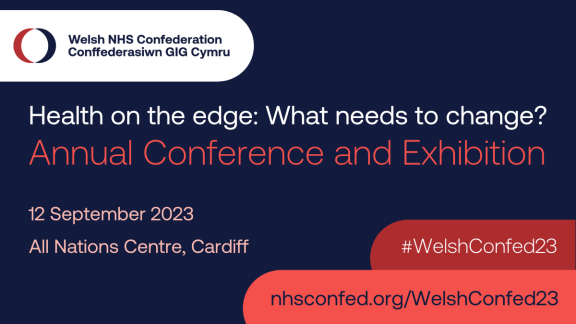Briefing for Members of the Senedd: Debate on dentistry
Key points to consider:
- We welcome the Committee’s report and the emphasis on prevention and the recommendation for a better understanding of the barriers that vulnerable groups face in accessing dental services and where inequalities lie.
- The COVID-19 pandemic severely impacted dental services due to the strict infection, prevention and control measures that were required to reduce the risk of COVID-19 transmission.
- Contract reform is a positive move towards prevention, ensuring those with the most needs are seen in preference to those with the least risk of dental disease. However, it is important to have a public communication campaign, highlighting key messages around prevention and measures people can take to improve their oral health. It should also highlight available online support to help people avoid accessing urgent dental care.
- The pandemic has negatively affected socio-economic inequalities, which will have a knock-on effect on oral health inequalities. More action needs to be taken in the prevention space if the burden of disease is to be reduced within the population. We are calling on the Welsh Government to produce a cross-government plan for reducing poverty and inequalities in adults and children.
- Workforce is a significant barrier to addressing the issues within dentistry, with no simple solution presenting itself due to the numbers being trained and the number leaving or retiring from the profession. It is vital that there is a greater use of the workforce skill mix, in particular dental therapists, and recruitment campaigns to increase the interest for Welsh domiciled students to remain and work in Wales.
- To determine whether current funding is sufficient, modelling is required on service need and access levels. In addition, we recommend that there is additional capital investment to support mobile dental units, drive productivity, improve quality of care and for dental practices to become more energy efficient.
- The burden of oral health diseases is high, and the oral health of the population cannot be improved through dental services alone. Cross sector working must be a priority due to the variety of factors which will contribute to improving the oral health of the population.

Impact of COVID-19 and the different types of dental services
The COVID-19 pandemic has had a damaging effect on dentistry services across Wales, with infection, prevention and control (IPC) measures limiting the number of patients which could be seen. As the de-escalation process begun, services slowly resumed a full range of treatments. However, services continue to face a growing backlog, with increases in patients who have complex needs and require urgent care.
There is a need to understand general dental services (GDS), community dental services (CDS) and hospital dental services (HDS) as an integrated system, with current delays across all three resulting in additional urgent dental cases. Members were clear that CDS resources must be focused on the backlog as a result of the pandemic and the care of vulnerable people, with insufficient access to GDS impacting on CDS due to increased referrals and reduced ability to discharge patients back to the GDS.
Additional capacity will be needed within primary care to ensure dentistry can also work across other local health and care services. Innovative digital solutions should also be considered and supported.
Dental contract reform and preventative measures
Contract reform is understood to be a positive move towards a learning oral healthcare system, which educates the population on the importance of prevention. The two main dental diseases, tooth decay and gum disease, are largely preventable and ultimately reducing the burden of disease will facilitate access to dental services and be more cost-effective. However, there is a balance which needs to struck between the long-term preventative agenda, whilst considering the current challenges within services. The high levels of urgent and active oral disease mean that a preventative approach cannot work alone, however a sustainable service will only be achieved if the burden of disease is reduced within the population.
The shifting of resources for GDS through contract reform is important to ensure those with the most needs are seen in preference to those with the least risk of dental disease. However, there are also concerns that patients affiliated to NHS dentists are not able to access routine care, with reports that check-up appointments are being cancelled or postponed. This is in line with Welsh Government guidance to prioritise higher-need patients but makes a preventative approach difficult to attain as delayed check-ups could result in deteriorating oral health for those waiting in the longer term.
In light of these challenges, it is important to have a public communication campaign, highlighting key messages around prevention and what measures people can take to improve their oral health and what online support there is available to help people avoid accessing urgent dental care. It is important that the connection between good oral health and general health is emphasised within the communication, with better connection between services provided in the best interest of patients and the range of healthcare services that maybe required.
The strengthening of CDS should be prioritised, so it is able to address the oral health needs of vulnerable groups in society. This should form part of a commitment to a long-term vision of radical transformation in the oral health system, which is required to scale up prevention inside and outside dental clinical settings.
Inequalities
Prevention and early intervention will be key if the dental services are to be made sustainable in the long-term and address inequalities in oral health, which are borne by those living in the most deprived areas of Wales.
Increasingly more people are unable to meet their basic living needs due to the cost-of-living crisis. Families are having to make difficult choices as to whether to spend money on mouthcare products, which will lead to worsening oral health and widening inequalities if they are unable to. In addition, calorie dense affordable food often contains sugar and until healthy alternatives are as inexpensive then this will also impact on oral health. Transport to appointments can also act as a barrier to dental care due to fuel poverty and reduction in affordable public transport and taxis.
There will be a lack of preventative dental care if increasing costs lead to people at higher risk of dental disease avoid attending appointments due to the costs involved. This could result in increased use of urgent and out of hours dental services and emergency hospital dental services. Vulnerable patients will especially be at a greater disadvantage.
Our members suggested that healthcare workers, food banks and organisations working with families in deprived areas should be provided with mouthcare products to offer to those who are struggling as a result of the increase in cost-of-living. It is also vital that the Welsh Government develop a cross-government approach to tackling inequalities.
In July 2022, 50 organisations working across health and social care endorsed the Welsh NHS Confederation Health and Wellbeing Alliance, in partnership with the Royal College of Physicians, paper ‘Mind the gap: What’s stopping change?’. The paper called for a cross-government approach to tackling health inequalities by consolidating commitments on inequality in one delivery plan, making it clear the levers of change do not reside entirely within the health service and the key role played by other sectors, such as education. Whilst initiatives such as Designed to Smile (D2S) and Gwen am Byth (GAB) are hugely important in addressing issues amongst certain groups of vulnerable people, they must form part of wider action on inequality.
With the increase in energy prices, dental practices may also be affected as they are heavy energy usage environments and all materials have increased in price. A fixed contract value and treatment tariff does not allow these increased costs to be passed on or recovered thus reducing profitability. This encourages practices to do more private work, where costs can be adjusted to allow for increased expenditure as in most other business models.
Dental workforce
Workforce is a primary factor in addressing the issues within dentistry, and actions are required to recruit and retain not only dentists, but also a range of other roles including nurses, hygienists, therapists and technicians, to enable a multi-disciplinary team with a skills mix.
Consideration needs to be given to allowing dental therapists to open treatment plans for patients who have low to medium dental needs, which could potentially increase capacity for dentists and enable more patients to be seen. There was also recognition that some areas of dentistry may have become risk averse in recent years and consideration should be given to enabling the workforce to carry out the full range of dental treatments expected of a general dental practitioner. This would improve care for patients and prevent inappropriate onward referrals.
Recruitment campaigns are needed to increase interest for Welsh domiciled students to remain and work in Wales. Our members also suggested that more dental student placements, scholarships and shadowing opportunities are needed. It was suggested by our members that a clear understanding of dental career pathways and how these can be tailored to suit colleagues at different points in their careers would also be helpful in attracting and retaining dental professionals.
Funding
To determine whether current funding is sufficient, modelling is required on service need and access levels. NHS dentistry spend has been based on the historical delivery of care to patients and not based on the oral health needs of the population, therefore any increase in spend could be directed towards models which can respond to how the public wish to access services and their needs.
Our members also highlighted the need for more capital investment and grant opportunities, suggesting the expansion of dentistry practices or the purchase of new builds could be supported through an ‘Improvement Grant’ scheme. If non-recurrent funding has become available, our members have found it difficult to ensure meaningful improvements as it is time limited and sometimes delivered at short notice.
Capital funding is also required for modern mobile dental units which are imperative in keeping vulnerable people in good health, enabling people living in rural areas or people living in more deprived areas of Wales to access dental services.



